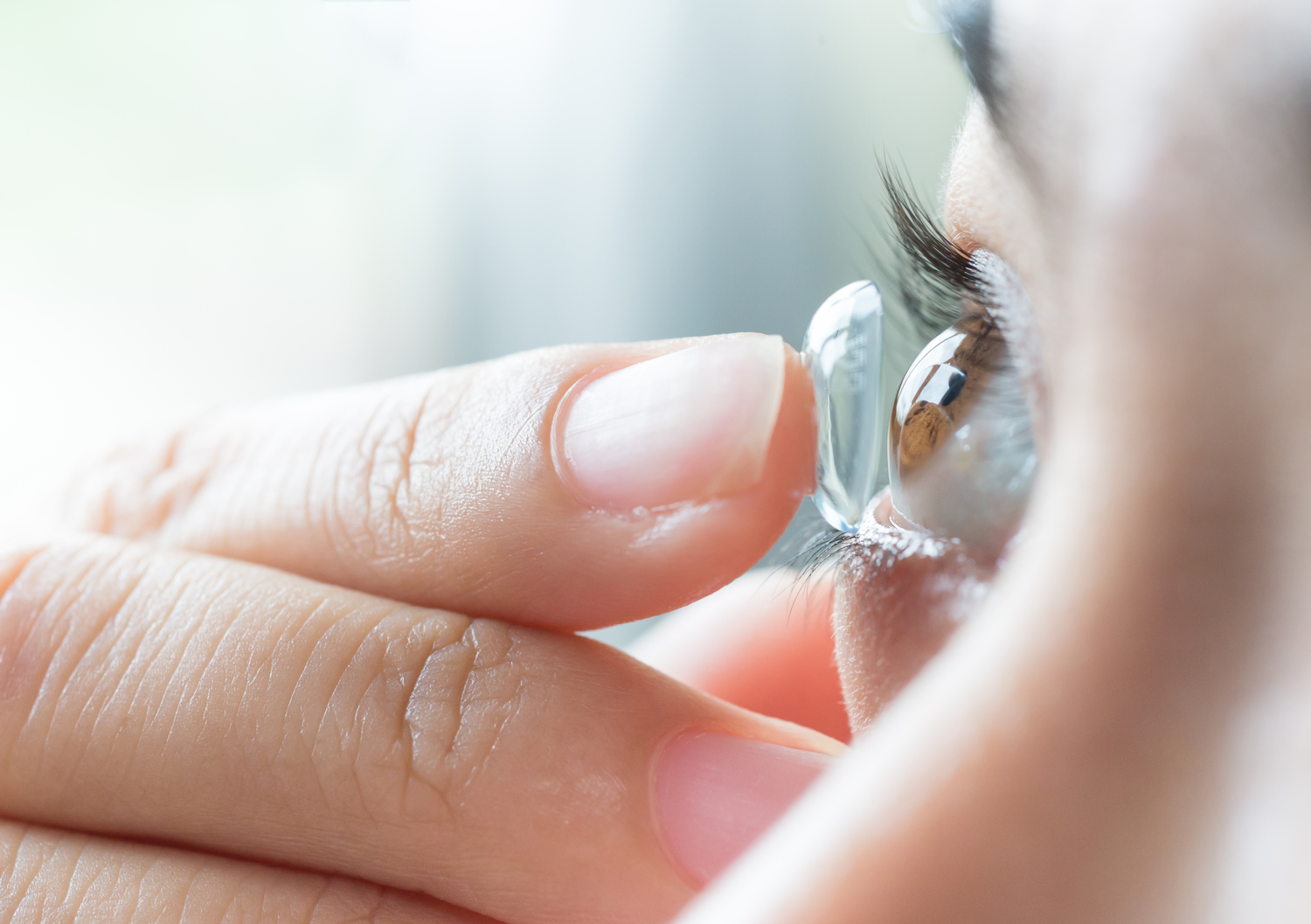A Brief Overview Of Contact Lenses
A brief overview of contact lenses
Contact lenses have emerged as a modern innovation. People all over the world require aids to correct their vision. Almost 168.5 million Americans use some kind of corrective device for their eyes, be it contact lenses or spectacles. This number is more than 50 percent of the population of the country!

However, why have contact lenses become so popular? This article is a discussion of this modern innovation and the frequently asked questions regarding contact lenses.
What do contact lenses do?
- Contact lenses are small prescription lenses that are worn directly on the eyes. Therefore, they are called contact lenses.
- They are designed to correct refractive errors in sight and maintain eye health. They focus light so that objects appear more clearly to the wearer.
- When worn, they float on the tear film layer on the cornea surface.
- They function very much like traditional spectacles. However, since they are placed on the eye itself, they move naturally with every eye movement. This is opposed to traditional spectacle wearers, who have to turn their heads every time an object they want to see is outside the field of their spectacles.
What are the features of contact lenses?
- Every contact lens has a prescribed period for which they should be used. On the expiration of this period, they must be replaced with new lenses. This is for hygiene and health purposes.
- Contact lenses may have a daily, weekly, monthly, or yearly prescription period. They will be prescribed in different strengths, as decided by the optometrist after your eye exam.
- Lenses also come as bifocal, monovision, and multifocal. Therefore, they are suitable for both nearsightedness and farsightedness.
- Cosmetic contact lenses may be corrective or not corrective. They come in a variety of colors such as red, blue, violet, green, grey, and many more. They help in altering the iris color of the wearer.
Who are contact lenses not suitable for?
- You may not be a good candidate for contact lenses if you have severe allergies, suffer from frequent eye infections, live or work in a dusty environment, and have dry eyes that resist treatment.
- It is also recommended that young children should not wear contact lenses, as they are too small to understand how to care take of them and how to behave while wearing them, like not rubbing the eyes excessively.
- To be safe, only adults should wear lenses. Children can wear spectacles until they are old enough to use contact lenses.
What are some tips for first-time contact lens wearers?
- Firstly, you must ensure that the contact lenses prescribed by your optometrist are stored hygienically in storage solution, which is replaced and renewed every day.
- Always wash and dry your hands thoroughly when you are about to touch the contact lenses to wear them. This can prevent stinging of the eyes, pain, and discomfort.
- You must regularly and carefully clean your contact lenses. This is done by covering your fingers in the storage solution and gently rubbing each lens between your fingers to scrub them clean of impurities.
- You must remove your lenses before you go swimming, as the chlorine and other chemicals in the water may harm the lenses and, consequently, your eyes.
- Do not sleep while wearing contact lenses. This causes a build-up of crust and fluid overnight, which damages the lenses.
- Always follow the recommended lens replacement schedule as given by your doctor.
Why are contact lenses becoming so popular?
- Ever since 1991, the amount of people using contact lenses has risen by 4 percent every year.
- Contact lenses are a cleaner alternative to traditional spectacles. This is why people who do not wish to wear clunky or uncomfortable spectacles on their faces on a daily basis prefer to wear contact lenses.
- As opposed to spectacles, lenses are a hassle-free method of correcting your vision. They are low on maintenance and do not require much upkeep and care, unlike spectacles.
- People choose lenses over spectacles due to lifestyle choices or cosmetic reasons as well.
With this information on contact lenses, you should be well-informed about how this modern innovation works!
Disclaimer:
The content provided on our blog site traverses numerous categories, offering readers valuable and practical information. Readers can use the editorial team’s research and data to gain more insights into their topics of interest. However, they are requested not to treat the articles as conclusive. The website team cannot be held responsible for differences in data or inaccuracies found across other platforms. Please also note that the site might also miss out on various schemes and offers available that the readers may find more beneficial than the ones we cover.











